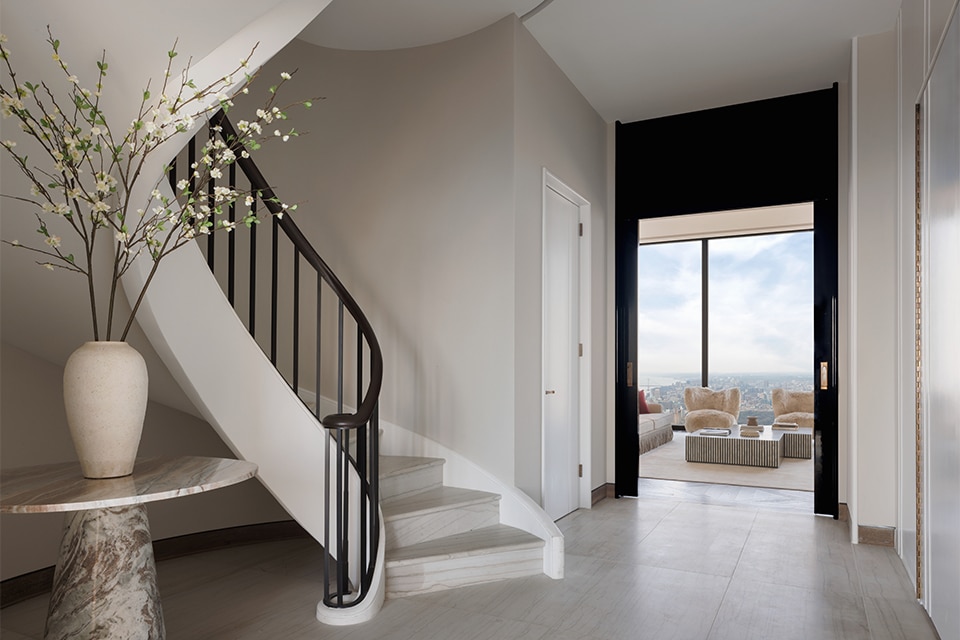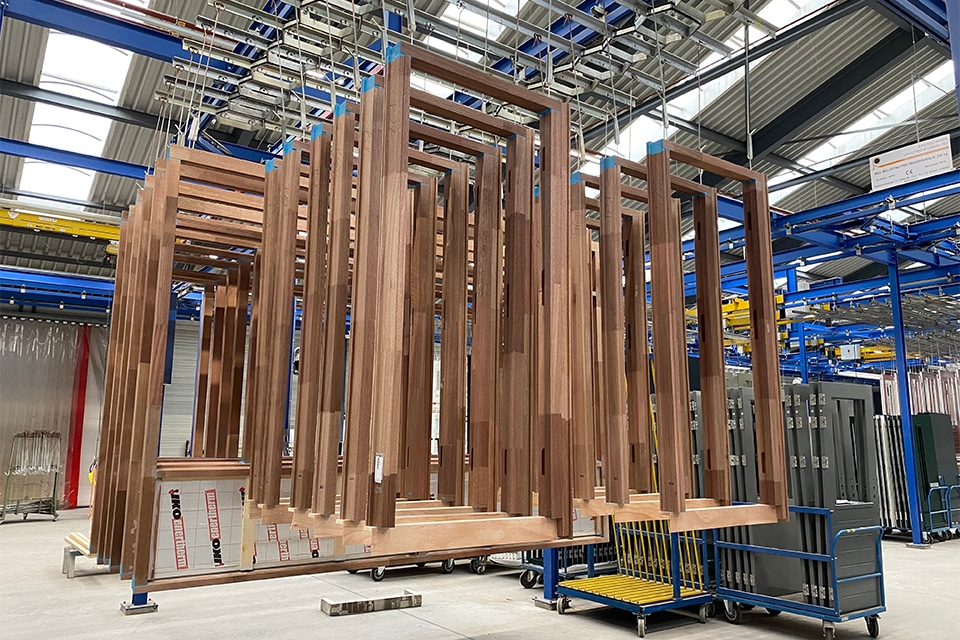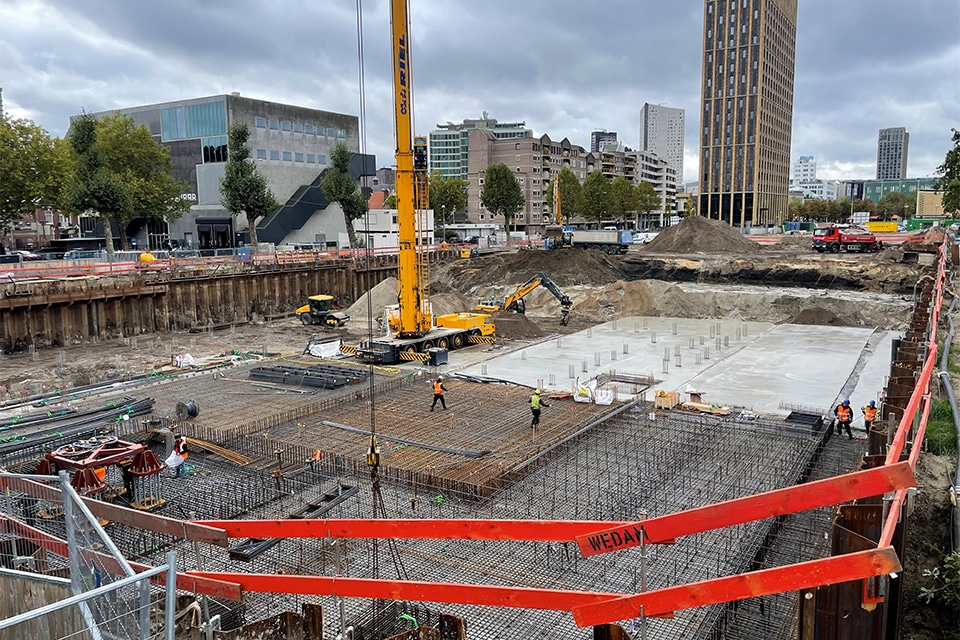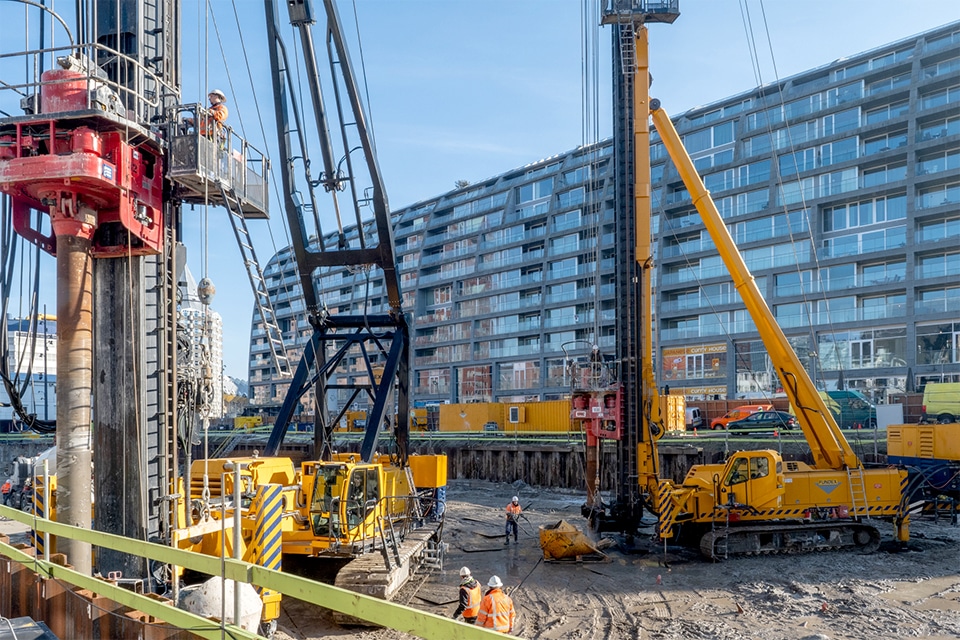
Market leader in insulation takes responsibility
'Better buildings for a better world'. According to this ambition, the Kingspan Group is committed to a better building envelope worldwide. "With our high-quality solutions, we want to continue to lead the market and make a difference for people and the environment," said Dennis Bol, Head of Product Management & Innovation at Kingspan Insulation.
Kingspan Insulation provides construction customers with (advice on) high-quality rigid foam insulation, where a sustainable life cycle, efficient use of materials and reduction of energy, CO2 and water are paramount. Without sacrificing unique features and design. "Climate change is not a problem of the future, but of now," Bol emphasizes. "To protect our planet, we must limit the global temperature rise to 1.5°C by 2050. We also need to reduce our waste streams and CO2-emissions significantly. The built environment plays a key role in this."
Responsibility
The construction industry is responsible for about 40 percent of all waste in the Netherlands and a major consumer of raw materials, he says. "Moreover, the built environment produces 39 percent of our CO2-emissions. This means that the construction industry has an ecological footprint that cannot be underestimated and must be drastically reduced to keep our planet livable in the future. As the market leader in insulation, we take our responsibility in this regard. In recent years, we have launched various initiatives to improve our products and processes, without losing sight of the current and very important product criteria for building insulation and application. With the development of a new generation of products, we want to prove that high-quality insulation and respect for people and the environment can go hand in hand."

Renewable resources
Bol emphasizes that, according to Kingspan Insulation, sustainability goes far beyond the amount of CO2 stored in a product. "It's also about minimizing energy and water consumption and keeping products and raw materials in the cycle for as long as possible. We are highly committed to this. For example, the raw materials we use for our insulation products must be as bio-based as possible. This starts with the product design. What renewable raw materials are available? And what does this mean for the DNA of our products? How can we make the basis of our products more sustainable without negatively affecting insulation performance, thermal values, fire safety and other essential properties? Several studies are currently underway in this area, from which we expect a great deal."
Minimal material, maximum reuse
In its studies, Kingspan Insulation adopts the LIFECycle model, which considers all aspects of a product's life cycle. "Here we look beyond recycling, because this is by no means always the most sustainable solution," Bol emphasizes. "For example, it is much better to reduce or even avoid the consumption of raw materials. But also to reuse products in the production or application phase. Because our insulation panels are considerably thinner than the available alternatives, we have already taken an important first step in sustainability. A second step will soon follow, with a take-back program for project waste on construction sites. In the short term, we want to start taking back leftover pieces and packaging materials, as we can very well recycle and/or burn these materials for energy recovery. In addition, we are actively looking for sustainable new uses, in accordance with the 10R model."
At a later stage, Kingspan Insulation also wants to take back panels that are released during transformations or when a building reaches the end of its useful life. Open collaboration and information sharing in the chain is essential for this, Bol said. "As a producer and supplier, you don't create a circular economy on your own. In order to be able to remove the insulation panels from a building again and guarantee a high residual value, for example, detachable buildings must be built. Moreover, clear agreements must be made about the separation and collection of the products. Can the panels be stored and recycled locally so that transport movements and associated CO2-emissions to a minimum?"

Planet Passionate
In 2020, the Kingspan Group presented the Planet Passionate sustainability program, setting ambitious goals for the next 10 years. Here the focus is on circularity and reduction of energy, CO2 and water. "One of our targets is zero net energy, with 100% of the energy we use coming from renewable sources. In 2020, we have already achieved this target. The ambition for 2030 is to generate 60% of the renewable energy at our own production sites," Bol says. "To achieve this ambition as well, the building roofs of all our own plants must be fitted with solar panels." When it comes to water, the group aims to capture 100 million liters of rainwater for reuse in production by 2030, and in terms of transportation, a zero-emission company vehicle fleet is targeted by 2025. "An important objective at the product level, is to no longer send corporate waste to landfills. We will achieve this objective this year, as we can now recycle most of our commercial waste into other building solutions. What remains is incinerated for HR energy recovery."



